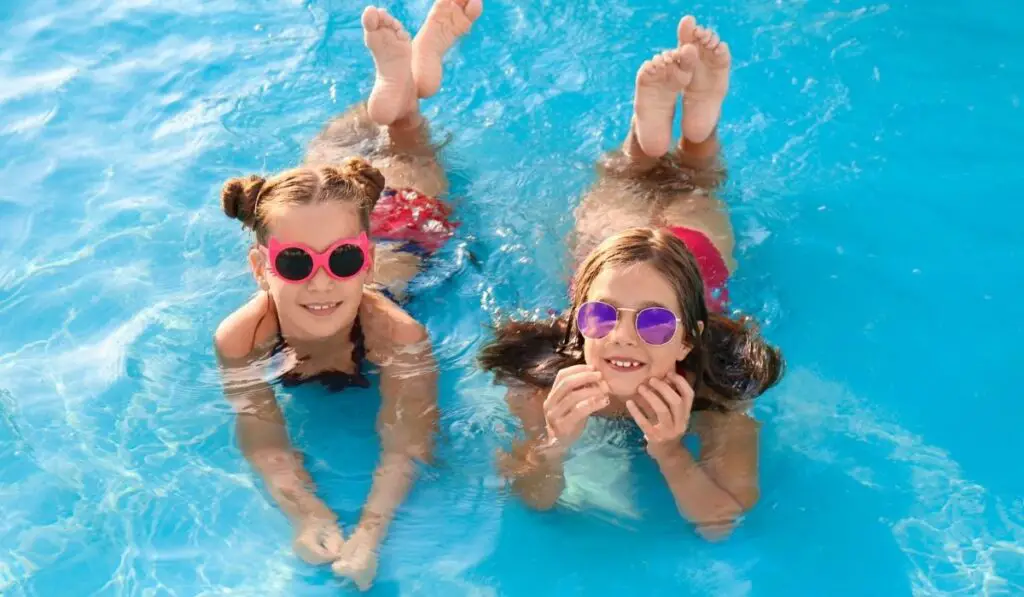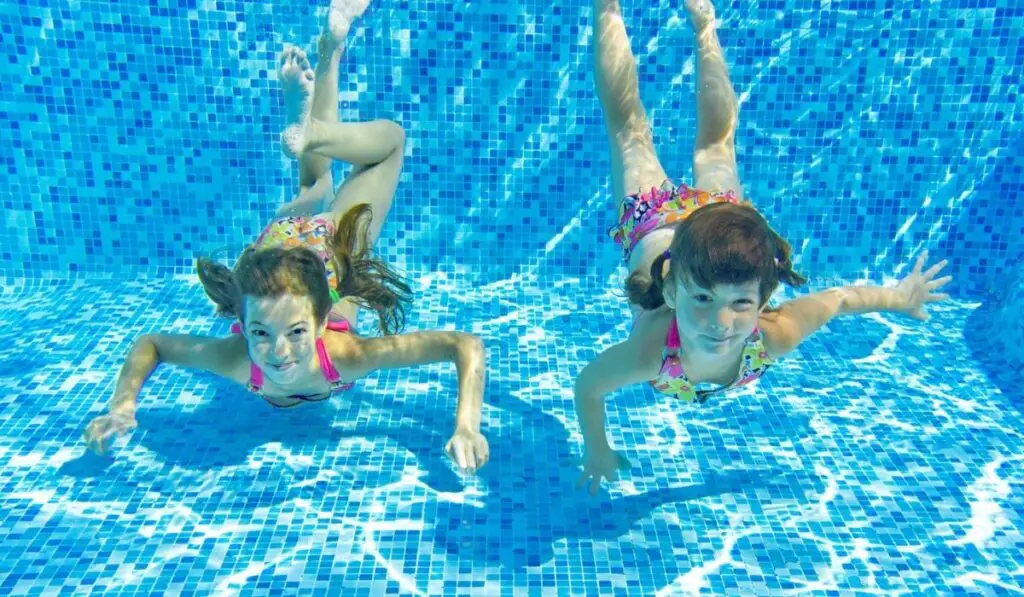Your parents may have warned you when you were younger that if you spend too much time out in the cold, you’ll get sick. And maybe they said something similar about getting in and out of a swimming pool. But what’s the truth behind this idea? Can you actually catch a cold from a swimming pool?
Although it’s not the temperature that’s at fault, you can indeed get sick from a swimming pool and then experience cold-like symptoms. It’s important to take certain precautions to avoid getting sick from a swimming pool and to seek medical advice if necessary.
Don’t let the potential of getting sick turn you off from a swimming pool. Instead, let’s take a look at the facts so you can know what to expect and how to protect yourself.
Can You Get Sick From a Swimming Pool?

Although it’s not a typical cold that you tend to get from a swimming pool, it’s very possible to get sick while in a pool. The following illnesses are the most common things you can catch from the pool water:
Cryptosporidium
In layman’s terms, this just means parasites that cause diarrhea, and it’s the number one illness you can get from being in the pool. Because there’s so much bacteria that can be found in pools, it’s all too easy to accidentally consume some.
Giardiasis
Giardia parasites are another common one. Most people are familiar with giardia parasites because of the potential of them infecting your dog or cat and making them sick, but humans can catch them too.
They affect the body in similar ways to the cryptosporidium parasites and usually cause diarrhea and other gastrointestinal troubles.
Norovirus
This nasty illness causes your stomach and intestines to swell, which can result in a whole lot of gastrointestinal trouble and pain. It spreads through contaminated food and liquids, including pool water, so once it gets in the pool, it’s easy for it to spread to other people swimming there.
E. Coli
E. Coli is another big one that can cause diarrhea and abdominal cramps for around a week. Although it isn’t usually serious, it’s very contagious and can be very unpleasant for those few days.
Chlorine Poisoning
Although ingesting chlorine in very small amounts shouldn’t hurt you too much, if you don’t check the chlorine content in your pool, you may be exposing yourself to a risky situation. Chlorine ingestion can cause a number of nasty symptoms, and it’s even proven fatal in some cases.
How to Avoid Getting Sick From a Swimming Pool

Now that you know the main illnesses you can catch from a swimming pool, it’s time to be preventative. Following these tips will help you keep nasty viruses and parasites from settling into your pool.
Clean the Pool Regularly
It’s very important to clean the pool as much as possible. Once every two weeks is usually sufficient. You should scrub the walls and, if things have gotten particularly bad, you can shock the pool by adding more chlorine to it (on Amazon). To shock the pool, you should add three to five times the amount of chlorine the pool needs and let it settle.
It’s also essential to use a pool net (on Amazon) to frequently scoop debris out of the pool.
Don’t Swallow the Water
Although ingesting a little bit of pool water shouldn’t cause any big problems, you should try to avoid it to the extent possible. All too often, chlorine isn’t strong enough to kill off every piece of bacteria in there. You don’t want to be swallowing pool water, because even if the bacteria is gone, it’s likely got a lot of other chemicals like chlorine and stabilizer in it.
These things will not hurt you outright, but they may give you a stomach-ache and, over time, consuming them over time will be bad for you. That said, it’s usually pretty easy to not swallow too much if you know not to. Parents will need to be aware and prevent this with children and pets.
Don’t Swim With Open Wounds
Open wounds basically give bacteria another chance to get into your body, and if you swim in contaminated water, the wounds could become infected.
Wash Your Hands
Every time you exit the pool, make sure you wash your hands — especially before you eat. Even if you’re careful not to swallow the water, you may get some bacteria on your hands and then accidentally transfer it to foods or surfaces.
Avoid Swimming After Rain
You should avoid swimming right after heavy rain. Rain will wash debris and other bacteria into the pool, so the water has a higher chance of being contaminated after rain. Make sure you do your due diligence before you get in after a storm.
The treatment in the pool will take care of this extra debris and bacteria, but, it probably needs a little extra time in order to handle all of it. So, don’t hop in right after a big storm, even if the sun comes right back out!
Be Careful of Hot Weather
As much as it’s important to be careful of rain, it’s also important to be careful of very hot weather. If your pool is baking in the sun, the UV rays could dechlorinate the water, and that means there isn’t as much chlorine to kill off bacteria. Keep an eye on those levels.
Can Chlorine Cause Cold-Like Symptoms?
Another thing people often wonder about is whether chlorine ingestion can cause cold-like symptoms. The answer is yes, it can.
Anyone can be exposed to too much chlorine, but there are some people who are more sensitive to it than others. Common symptoms may include:
- Rashes on the skin
- Feeling like your nose or airways are slightly blocked
- Runny nose
- Itching
- A headache
People with asthma and other respiratory diseases may be particularly sensitive to chlorine in a pool. If this is a problem, wearing a nose clip can help to stop chlorine from getting into the body.
If you have any serious signs of chlorine poisoning after being in a pool (like chest tightness, muscle weakness, or blurry vision), seek medical attention immediately.
It’s impossible to be allergic to chlorine, but it’s not impossible to be exposed to more than your body can handle. You should also make sure you check the chlorine level of your pool every time you enter it, since anything above 5 ppm is too much.
